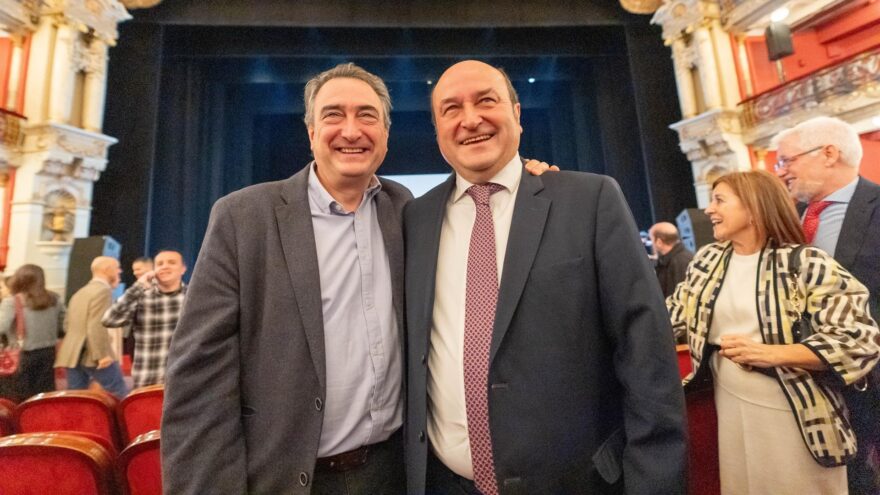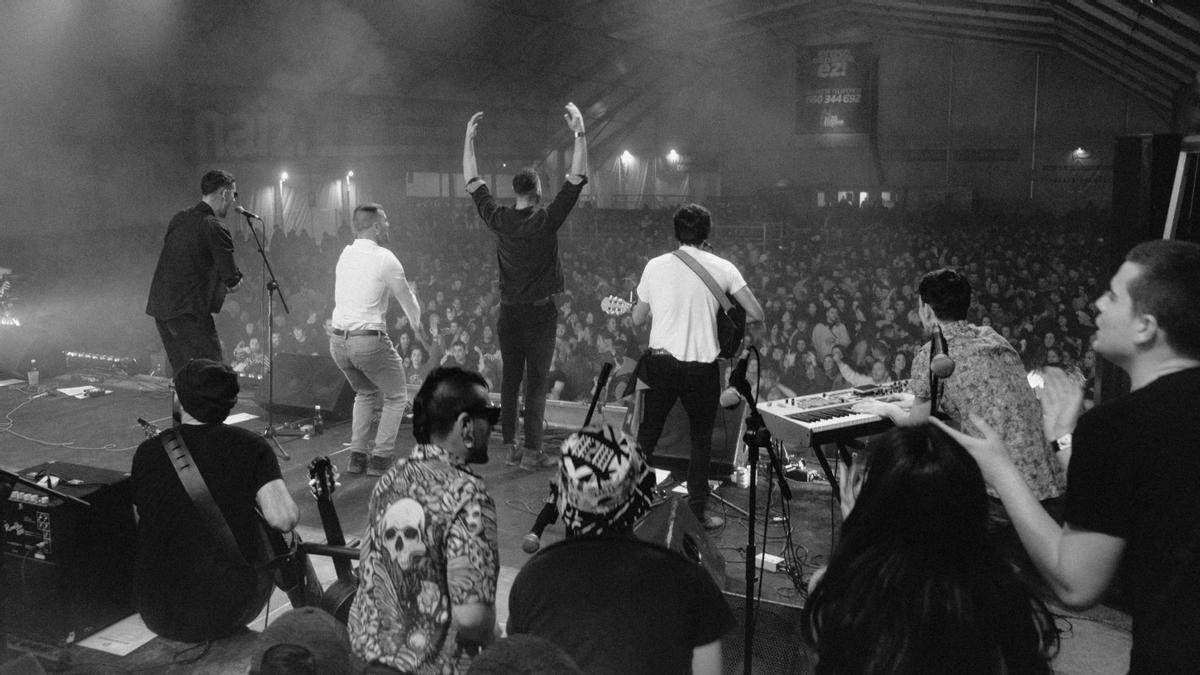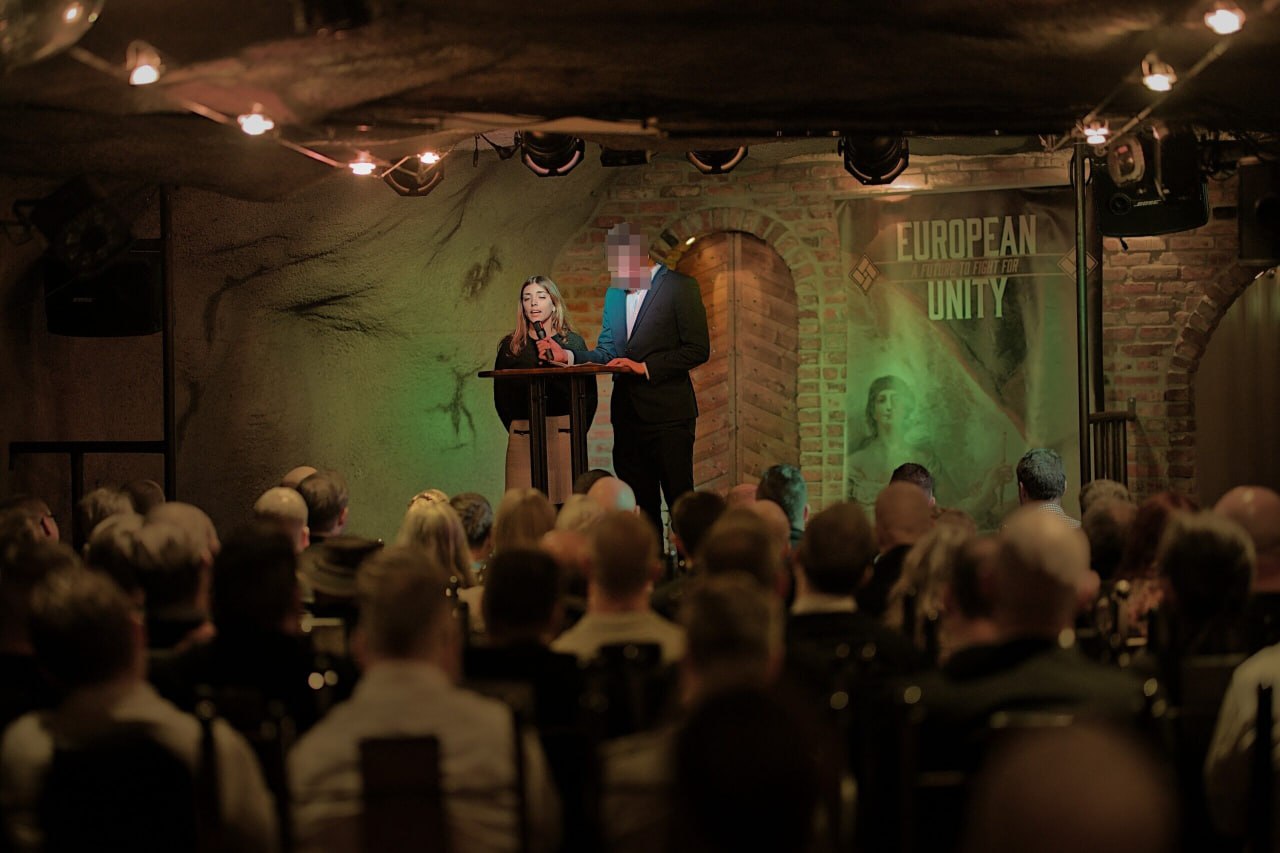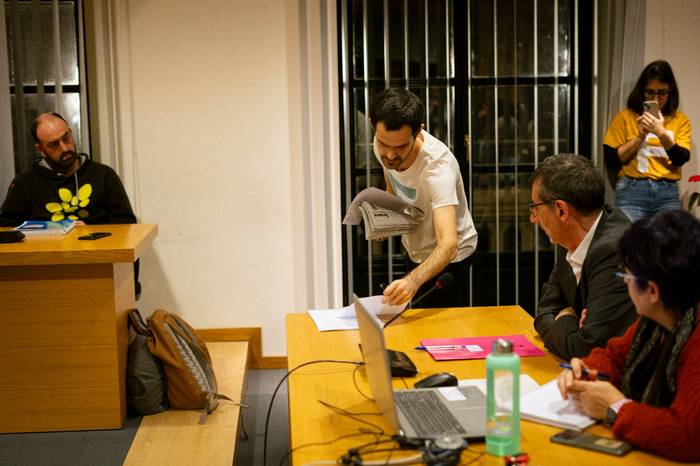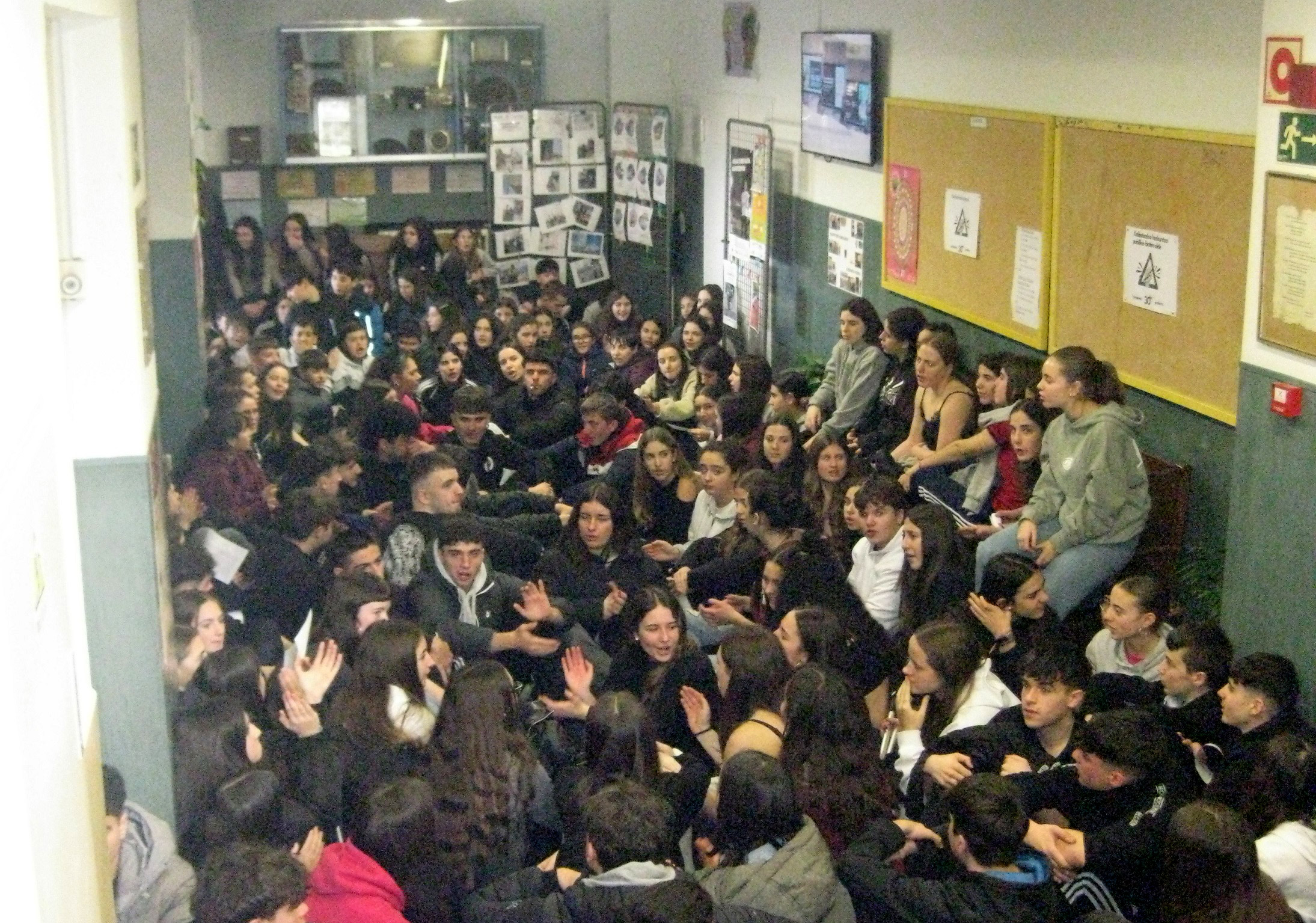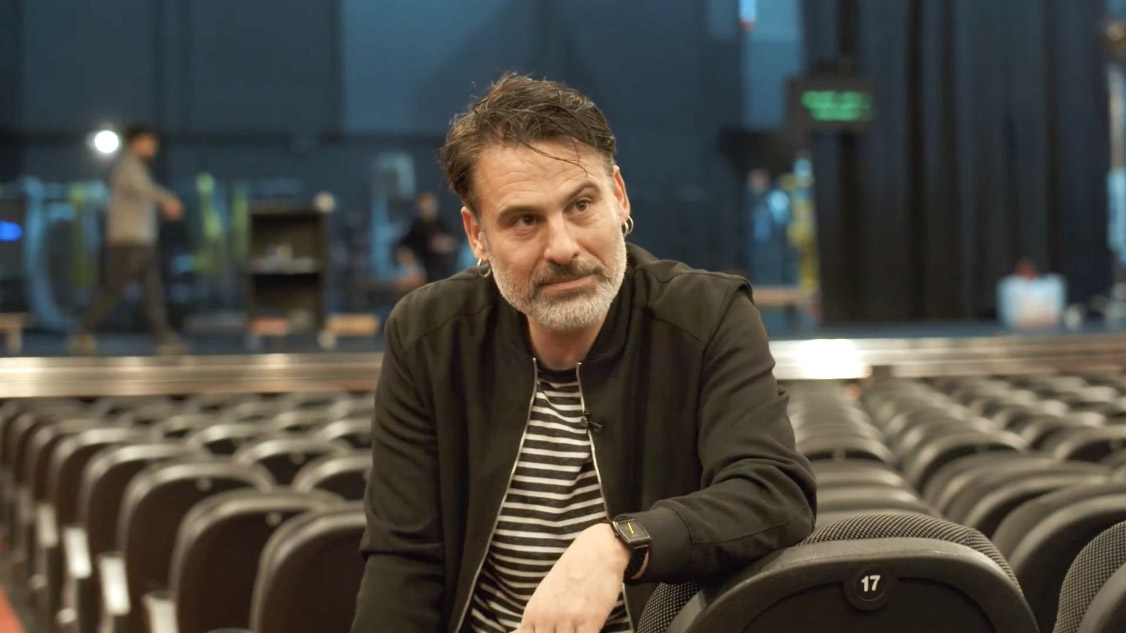Paradise of Organic Gardens
- The Eden colony is located on the periphery of Berlin. Born at the end of the 19th century, fleeing the traditional socioeconomic model, it is still centered on cooperative lands and ecological gardens, but with a trajectory full of ups and downs over 118 years.
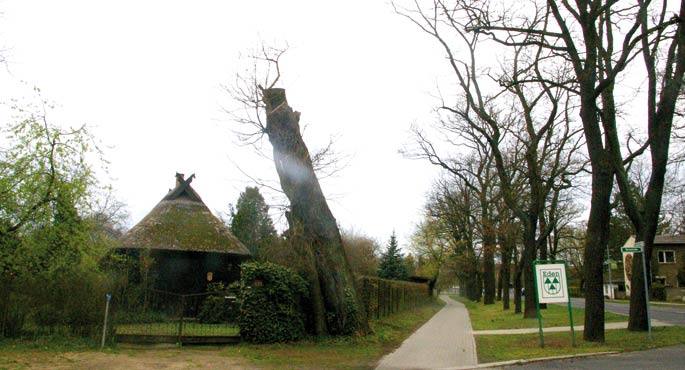
Twenty minutes after taking a train in the north of the city of Berlin, I am in Oranienburg. The 3.5 km separating this provincial capital from some 40,000 inhabitants of the colony of Eden can be bike tours. One sign announces the colony and the three trees of the stylized shield are the symbol of the three basic pillars of the project: land reform, the economy and life. Edén was born as a vegetarian colony in 1893, by decision of 18 men from the Reforma de la Vida movement, at a meeting held at the vegetarian restaurant Ceres in Berlin. Later, the most active members of Eden continued to be vegetarian, but in 1901 it ceased to be a condition to be part of the colony.
The name of Eden refers directly to the terrestrial paradise of the Bible, indicating the objective of the cooperative: natural life away from the urban center in the community land. Everything appears enclosed and I have not found any of the aesthetic characteristics of the possible alternative life I expected. Nothing to suggest the charm of objects placed in an unexpected place or molded with rare functions. Normality and general order.
The cooperative owns land that I cannot see because of fences and high conifers; the land is divided into rents. This has been Eden's basic structure in these 118 years. This and the ecological exploitation of orchards that the population is obliged to supply with fruit trees and berries shrubs. I thought I was going to a special world, almost landing on a satellite. And I've found a residential area on the periphery of Berlin. From now on, without the beginning of the 20th century, my excuses are focused on investigating what survives today, from the utopian concerns of a group of idealists.
In figures: 120 hectares, 14 kilometres per route and about 1,500 inhabitants. The founders were citizens, journalists, engineers and plumbers from Berlin, and through Eden they wanted to give an alternative response to the economic and social changes of the brutal jump from agricultural society to industrial society. The Reform of Life movement was at its peak in the late 19th century and decided to buy the land, in a place with rail connection and cheap with Berlin. They were, however, real idealists: they had needed a lot of horse carriages to bring forth the sandy land where the sheep were grazing. Edén, like other similar projects that emerged at the same time, intended to oppose the increase in the value of the land through the creation of a cooperative, so that the land was not a source of speculation. The words of Adolf Damaschke, a member of Eden, show that the rest of the reformist objectives are based on this idea: “Without a proper Earth policy, you cannot lead a healthy life.” The way of understanding a healthy way of life encompassed different areas (property, work, food, leisure, education) and has not yet lost its present.
A committed family: The Eisenberg.
Every Sunday, at the headquarters of the old juices factory, the coffee is open and it is usual to find a group of retirees gathered at a long table. I have received Mr Beumer's request. Eisenberg, retired professor of Vocational Training who settled with his wife in the colony in 1962. The Eisenberg are known in the community for their active participation in the social and cultural life of Eden: Dieter is responsible for the exhibition; Waltraud, who has worked in the writing of the magazine, belongs to the cooking group for a healthy diet; and Susanne, one of her daughters, besides being director of the nursery, works in the library open every Tuesday.
There are also people who have no interest in community life. Dieter Eisenberg estimates that the hard core is made up of about 150 people, representing 10% of the members. “Something has remained of the original ideals, but some do not care. The goal is to attract those people. Not by obligation, but by conviction.” The Eisenberg did not arrive in Eden for ideals: “We studied in Berlin Waltraud and I, and we received the house here through the Housing Department. After a number of people fled to West Germany, many land remained empty and passed into the hands of the public administration. Like us, many families lived in Eden. But then we completely immersed ourselves in the structures here!” According to the former professor, the biggest problem facing the colony today is that of the economy, which is the financing of the cooperative. “In their day they had a fruit factory. But now how are we going to maintain the Community buildings? How can we keep the wages of those who work for the cooperative?” His generation lived through the time of the planned economy, a situation of paralysis under the communist regime. In order to sell Eden’s products also in West Germany, near Frankfurt they created a company, but from 1961 on, the cooperative changed from being the majority owner of the company to 17%. In 1972, the fruit factory became national property. The political changes of 1989, on the other hand, put Eden before a new point of
partida.En 1991, the members of Frankfurt sold the Eden product company. Among the funds obtained from the sale are the construction of a nursery and homes for the elderly. “That money came to us well, but without producing it ends,” says Eisenberg, worried. “Producing beyond one’s own needs stopped being profitable and many members of Eden largely refused to exploit the orchards. Today, many produce their own fruit and vegetable again, but there is no sale. We have to look for other sources of income.”
The Golden Times
When the coffee is open, you can also visit the exhibition of Eden. Their archives highlight the importance they have given to the preservation of history. D. Engelman, wrapped in reading, raises his head dressed in a Basque hat and welcomes us with a smile. Ingmar Engelman fled to the West with a simple train ticket in 1959 and returned with pre-retirement in the early 1990s. His family has lived in Eden since 1920 and his grandfather managed the cooperative for many years. Like Engelman, many of the retirees living in Eden today are born and raised in the locality, who after living outside for years (for work, for family) have chosen to return. “The past of Eden was a success. The present is not,” he says. Today all have fruit trees and green bushes in the orchard, but that does not require any special effort. Although some would like the cooperative to be more demanding, two men have stressed that tolerance is also a fundamental basis since the creation of Eden. “This tolerance was seriously breached once – as Mr Engelman warned – at the time of National Socialism.” Even then there were Jews living in the colony.
The colony's flourishing continued until the Second World War, becoming part of the Life Reform movement. In 1898, they created a fruit factory and produced more than they needed for their own consumption; they began to produce juices and jams with pears, berries, apples, strawberries. The products of Eden were also tomato juice, saque juice, sauerkraut juice or vegetable butter. The rest were sold in the Berlin market and in the shops of Delikatsen. In the 1920s he participated in the birth of Eden and the first Reformhaus chain, one of the largest producers of Reformware or healthy/natural products in Germany. Pioneers of the organic shops, the Reformhaus were created to market these alternative products. Now, economic problems are the colony's main threat.
New ideas for new times
In any case, even today there are those who have started something new and full of ideas. In the center of the colony, I found the “Orchard of Apples and Aromatic Herbs,” where I met two dreamers: Diana Reichenberg and Fred Rempel. In 2007, three plots were rented that were free from 1945. They came to Eden with great enthusiasm, wanting to live in contact with nature and with the neighbors. “The garden has always been a dream for me,” says Reichenberg. In this field, which until 1945 was a fruit orchard, we discovered an old and wonderful tree and had the idea of creating an organic farming orchard. I can make my dream here. In addition, the ideas defined in the statutes of Eden are the perfect basis for our project.” Think of the reformist principles: “We would like to make our contribution to maintaining and developing Eden’s traditions, especially with regard to organic farming.”
Until 2008, Diana Reichenberg, who has been secretary of office, is now studying agriculture studies on his own, through experimentation and experience. Even in the early days, most of the members of Eden were ignorant in agricultural matters and at the time of the sand and the earth managed to produce products of the highest quality. The way the Reichenberg garden works is special: “The fundamental principle is to allow nature to do itself as much as possible. For example, I use watering, but rarely I hold back, plants should be able to search for water under the earth. By spreading manure, weeds go down a lot, and besides, don't cut the soil, I let the worms work. Some look oddly at me – he says with humor – but the other day I was approached by a neighbor who told my husband that ‘if it works in Diana, also in us’ and that since then they have much less work with the garden.’
After all, the secret of the former secretary is to exploit the vegetable garden by working with nature. Before, yes, it has had to do many tests, as the process of soil fertilization has been slow. “We are making sensible changes to make the garden a living space close to nature, preserving and promoting biodiversity and the ecological balance of the species that have been created over decades.” On an area of 6,000 square meters, visitors will be able to learn about different methods and, if they wish, try by their own means. Along with the old fruit trees of the 1920s, they have planted new, planted a round orchard under the glass of one of the plums, planting in the form of permaculture aromatic herbs, vegetables and tomatoes; following the rules of the culture of fertilizer, traditional vegetables, ancient species – 15 different types of potatoes!–, topinambur herbs and old crops will grow between and open leaves like manure. There is also a forest area with wild berries and aromas, where birds and sea urchins have turned a lot of tables into makeshift accommodation. Diana Reichenberg looks fondly at the orchard, all around her is right to be. It looks wild, undomitable, messy.
Young families
I've approached kindergarten with the intention of meeting the youngest families in Eden. About 30 of the 90 children live in Eden, while the rest are from nearby areas of the island. The residence is striking: it is ecologically constructed, with colored planks, grass covered roof and walls built with raw adobe.
I've met a couple at the door of my residence: the woman is from Eden and the husband is married there; they don't show too much connection and commitment to the community, but they like to live near nature. Furthermore, I have been reminded that living there is very cheap, and yet there are still 19 free pitches that can be found. In order to obtain the building licence, an operating capacity of the orchard must be demonstrated for two years. Many are frightened by the conditions or retire because you can't buy the land.
I spoke to a couple who was not frightened by the conditions: he was the third son and they came to live in Eden, five years ago. They wanted a vegetable garden and a social environment for the community. “We have found what we wanted and it has been easy for us, through the children and the garden, to relate to others, both with those who were already there and with those who have come.”
Susanne, the head of childcare, encourages parents to participate, although it is not always easy. He stressed that among the objectives of the colony there is a desire to do things together, although not everyone has that goal, because some seek tranquility, “and I understand, in these times when we are bombarded with information, the tendency to self-preservation. In addition, in the early days of Eden, today we are missing those charismatics that had the ability to fascinate people. And not only in Eden.”
Let's go back to nature
There were also ups and downs in the glorious times of founding, which are often referred to. This is the anecdote written by Oskar Mummert, a member of Eden, in 1918: “From the difficulties they had in establishing the public bathroom, it can be deduced to what extent the struggle for existence hindered the fulfillment of the important demands of the Life Reform. At the time of the bath, with passion, and in most cases with debates provoked by those from the outside, soon the Eden, each on their land, inclined to prefer to take the sun in peace”.
However, if the partnership materializes in the structure of the Community land and in the ecological exploitation of orchards, what has survived is no little. On the contrary, many attitudes that have normalized outside Edene have virtually disappeared in the colony. For example, the concentration of vegetarians in some neighborhoods of the capital could be higher than that of Eden. Moreover, beyond these limits, the heirs of the reformist utopias are once again very alive. Rousseau's slogans and naturists rise: Let's go back to nature! Communities like Eden can be a good starting point for this. And that is that more and more people want to anticipate the collapse of the system, seeking refuge in the countryside, where, as in paradise, if nature is worshipped, without getting too tired of the hope of picking up ripe fruit from the trees.
Vagina Shadow(iko)
Group: The Mud Flowers.
The actors: Araitz Katarain, Janire Arrizabalaga and Izaro Bilbao.
Directed by: by Iraitz Lizarraga.
When: February 2nd.
In which: In the Usurbil Fire Room.











